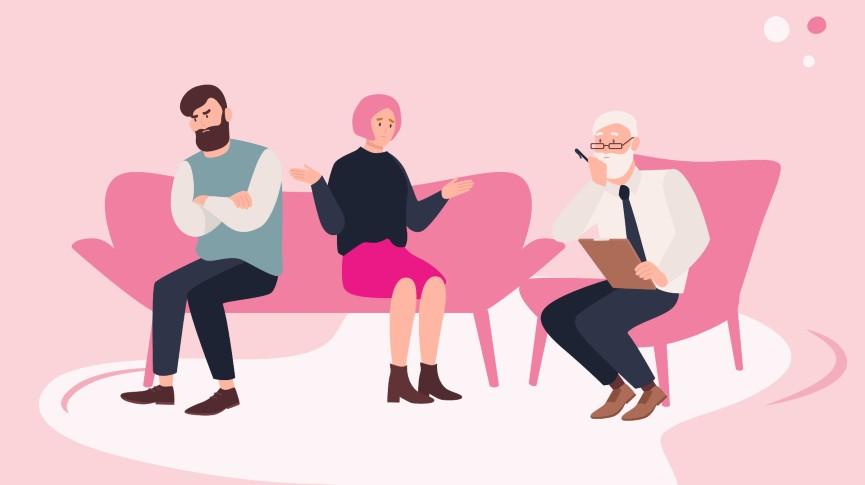Should I Go To Couples Therapy? When, Why and Where to go?
Couples therapy doesn’t always have the best reputation.
When people think of couples therapy, they think something must have gone wrong in the relationship, or that they are about to break up or get divorced.
That’s true in some cases, but not all the time.
Couples therapy, like any form of therapy, doesn’t just have to be used as a last-ditch effort to save a relationship. It can also be used for partners to help learn about each other and grow together and as individuals.
If you’re wondering whether or not you should go to couples therapy, here are some things to keep in mind.
What is Couples Therapy?
In the United States, couples therapy is typically led by a licensed marriage and family therapist (LMFT), a licensed clinical social worker (LCSW), or a licensed professional counselor (LPC).
It is used to help couples improve their communication, deal with challenges and changes, and help your relationship grow.
The tools used will vary depending on the provider and the couple’s needs. It will typically involve sharing each other’s perspectives with a neutral moderator, aka your therapist.
Your therapist will help give you new ways of relating to each other and resolving conflicts. They may also use couples’ activities, and watch for any signs of mental health issues.
You Can Go at Any Age
You might think only older couples go to couples therapy. Not true!
It doesn’t matter how old you or your partner are, or how long you’ve been together, you too can go to couples therapy.
We’re seeing more and more younger couples going to therapy these days. Does that mean they’re having more issues? Not necessarily.
It more likely means that there is less of a stigma around couples therapy, and people are seeing the benefits of it no matter where they’re at in life or their relationship.
The more we normalize people of all ages going to couples therapy, the more we can see it as a practical tool that anyone can benefit from.
Nothing Has to Be “Wrong”
Going to couples therapy shows that you and your partner are not only committed to the relationship and each other but want to see it grow and get better.
There’s always room to grow and learn in life, and in your relationships. Without growth, things become boring and stagnant, and that’s where we see more issues arise.
There will probably always be some kinks to work out or ways you can improve how you relate to one another. Having a neutral third party like a therapist can help you and your partner grow closer and closer as your relationship becomes stronger.
You Don’t Have to Be Married
Contrary to popular belief, you don’t have to be married to go to couple’s therapy.
No matter what your marital status is, you and your partner can go to couple’s therapy. Going to therapy can help you determine whether or not marriage is for you, or at what stage you might want to consider it.
It Can Help You Through Big Transitions
There will always be transitions in life, some of them will affect your relationship more than others. Having a therapist to turn to can help you both ease through these transitions, and the effect they may have on your relationship.
Here are some transitions therapy can help with:
- Moving: Whether you’re moving together, or apart and becoming long distance.
- Opening up your relationship: If you’re considering becoming polyamorous or dating other people.
- You’re thinking about having kids, are expecting, or have already had them.
- Changes in your sex life.
- If a major stressor has happened whether it be financial, a loss, or another sort of trauma.
- If you’re experiencing codependency or are feeling distant from each other.
The Bottom Line
If your partner isn’t open to couples therapy, your relationship can still benefit from you going on your own.
It may be frustrating to feel like the effort is one-sided. But when you go to therapy as an individual, you’re able to learn tools and communication skills that you can then bring back to your relationship. You can use these to help your relationship grow and thrive, or have a better understanding of when it’s time to walk away.
Only you and your partner, or partners, know whether or not couples therapy is right for you.
It may take time to find the right therapist that’s compatible for both of you, but when you do, it can help your relationship tremendously.
Even after you find the right therapist, it can take quite a few sessions before you truly start to see a difference. You are learning new communication skills, new ways of relating, and if you’re overcoming big issues – healing. All of this can take time. But if it’s worth it, and you’re seeing even just a little bit of progress, then it’s probably worth sticking with.

